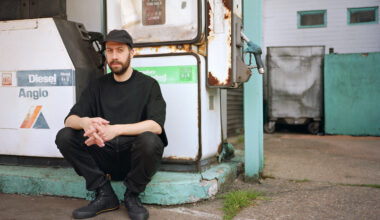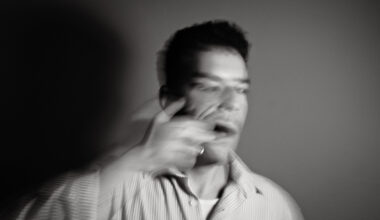Jaime Bermúdez Escamilla adopted his pen name from the late poet María del Adarve. A music enthusiast, as well as a composer and sound designer, Jaime was always compelled by what awaits at the intersection where music, words and images meet, and how the audience takes part in that exchange. His work has found its place in film, theatre and video games over the past decade.
He began to develop his passion for music at the age of 12, when he started taking classical piano lessons in his hometown in Andalusia. At age 17 he joined a metal band, which is what you do at that age. A natural-born geek, he then bought his first Pro Tools equipment and began writing and producing fun instrumental pieces that sounded a lot like movie soundtracks. Not long after, he would start collaborating with friends on their projects, writing music for live art performances, short films and small games.
In 2015, Jaime co-founded his own video game company, an adventure that would give way to his freelance career in the sector. On the side, he is an interactive music lecturer at the University of Barcelona and he also writes for the classical music magazine Press Music. On the 24th of March 2023, Jaime released his debut EP Neu via piano and coffee records. The four-track EP was accompanied by a release concert in Barcelona with Peruvian musician Sergio Dìaz De Rojas, and a Piano Day event at La Muriel with Marta Cascales Alimbau and Ola Wagner. More recently, Jaime accompanied Zaragoza-born writer José-Ramûn Ayllûn Guerrero in the presentation of his poetry book Pacific Grove.
FACTS
1. Jaime Bermúdez Escamilla adopted his pen name from the late poet María del Adarve, who introduced Jaime’s grandfather to poetry
2. For a decade Jaime has worked on music and sound design for video games. His work has also appeared in films and the theatre.
3. Jaime del Adarve has also been writing poetry since childhood. Some of his instrumental pieces are explained by adjacent poems.
1. What is the biggest inspiration for your music?
There is a serene yet melancholic feeling that always sends me to the piano with a promising outcome. It’s a state that manifests through very different circumstances: Iive found it after a meaningful conversation with someone dear to me, after reading one of my go-to authors, or travelling on my own, or simply by looking out the window to a red sky. Iive found it through pain and loss too. When I’m captured by this emotion I feel like all the noise has been put to rest, and I can listen to my true voice, lurking somewhere within.
2. How and when did you get into making music?
After a few years in music school playing piano I bought an mbox digital audio interface and a new keyboard and started playing around with virtual instruments, and out of intuition I started writing short pieces that sounded a lot like the movies for me. Then I joined my friends metal band and started writing keyboard arrangements. I played with them for more than a decade and their superb and eternally thirsty taste for music opened my brain to every kind of influence out there. With all this in my backpack, and after moving to Barcelona, I got my first soundtrack gigs (film, theatre, games). It wasn’t until a bit later, after going through the first real rough patch, that I discovered writing for myself, with no other intention than channelling this very heavy sensation inside of me. The weight was lifted, and then I couldn’t stop.
3. What are 5 of your favourite albums of all time?
Tubular Bells (1973), by Mike Oldfied. This album was my realisation that a person could conceptualise and carry out this instrumental album concept, and that became my life aspiration.
Brothers in Arms (1985), by Dire Straits. This band makes one of my first and fondest childhood memories. Money for Nothing, Walk of Life and Brothers in Arms are some of the most important songs in my life.
Vivalaguerra (2006), by Standstill. The life philosophy and commitment to their craft of the legendary Spanish band led me to take this creative purchase seriously. This album is fierce, ambitious, a leap of faith, the daring view of that who has not much more to lose, who’s given it all to their calling.
Bon Iver (2011), by Bon Iver. As you can tell from my first two albums, The 70s sound was instrumental in my upbringing. I reunited with that sound in Vernons second album, which I consider a masterpiece. Every single song there is crucial for me, and it’s by far the album I have listened to the most in my life.
“Eulogy for Evolution” (2007), by Olafur Arnalds. The early works of Arnalds and the piano works of Philip Glass and Max Richter were the spin that initiated the music I write now. This album is completely unnatural for a 20 year-old. It is an evolving concept that describes the themes behind the music in an inexplicable eloquence for instrumental music. A summit of sensitivity and emotion far beyond what you would expect of someone at such a young age.
4. What do you associate with Berlin?
Much of the music that inspires me was born there, from Tangerine Dream to Apparat, Tale of Us or Nils Frahm. I see Berlin as a city that shows deep appreciation for all kinds of cultural and artistic manifestations, and I can’t wait to play there and contribute to that.
5. What’s your favourite place in your town?
La Muriel is a lovely venue in the lively neighbourhood of Gracia. The programme is hectic, they welcome all kinds of artistic proposals, and they are very involved and honest with the artists. They have a great jazz jam session every Sunday evening.
6. If there was no music in the world, what would you do instead?
I would focus on my writing of poetry. Writing came to me at a very early age as a form of digesting and expressing what was going on inside, before I started playing music in the first place.
7. What was the last record/music you bought or listen?
That would be Cancionero de Los Cielos, the astonishing LP by my friends Viva Belgrado, a masterpiece that shows a matured and daring artistic direction, a very solid concept and their customary raw and honest expression.
8. Who would you most like to collaborate with?
This list could be endless, but Marina Herlop is one of the artists I’m more excited about now. She is pure talent, intuition and innovation.
9. What was your best gig (as performer or spectator)?
I have to name two. I have a very fond memory of seeing Bon Iver perform their sophomore album in Poble Espanyol in 2012. It’s one of the most compelling performances Iive been to, and the start of a long-time devotion for Justin. Then I was fortunate enough to see Kate Tempest perform their holy Book Of Traps and Lessons at Primavera Sound before it came out. I was instantly captured by Kate, I couldn’t peel my gaze off them, and I was brought to tears by that psalm of a song that is People Face
10. How important is technology to your creative process?
It has always been an expression tool as much as the piano has been, Iive always used instrument libraries to recreate the timbre of the instruments that I wanted to write for and use the sound as a source of inspiration to capture the expression of that instrument. On a separate note, sound design has always been fascinating for me, and it is part of what I do for a living now, and without the years of experimenting with digital audio tools I’d have never got there.
11. Tell us a bit more about your new album “Las Horas”?
“Las Horas” (The Hours) is a purposefully ambiguous title. It may refer to the divisions of the day, like in “La Amanecida”, an Andalusian word for dawn I learned from my grandma. The title could also talk about the Greek goddesses of justice, like Peace, reflected in “La Quietud”. But most importantly, the title plays homage to the representation of these gods on Earth, the women that nourished me and held me on their laps who taught me what was good and beautiful, where harm waited, what my place was.
The EP was recorded and mixed at Sol de Sants (Barcelona) by musicians from the Schubert Filharmonia Orchestra in September 2023.


